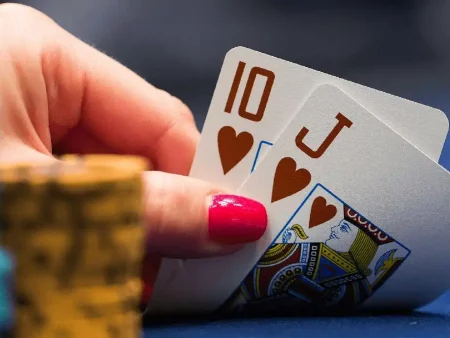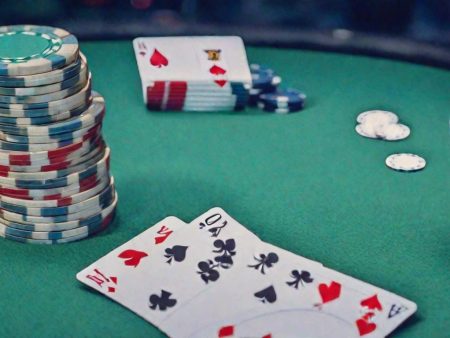In addition to the universally recognized rules, the poker community follows a certain code of etiquette. While not strictly required, adhering to this etiquette is important as it fosters respect from both fellow players and spectators. Experienced players, including those who use mobile casinos, tend to follow established norms of courtesy and fair play in an effort to maintain genuine interaction.
The term “slaughter” in poker refers to a breach of etiquette, where a player with a winning hand intentionally slows down the game to show off their superiority, often mocking the opponent. Avoiding such behavior is key to preserving a reputation as a fair and sportsmanlike player. Understanding when slow play is acceptable and when it is considered inappropriate or unsportsmanlike is crucial. Maintaining a strong grasp of etiquette improves the atmosphere at the table and upholds the spirit of fair competition.
Understanding the Concept
In its traditional sense, the term ‘showdown’ refers to the active revealing of cards by the player with the strongest hand. The use of this tactic can manifest in various ways:
- Deep deliberation and careful thought before making a bet.
- Deliberate slow reveal of cards at the crucial showdown moment.
- Interaction with the opponent during the waiting period.
- Prolonged card presentation after the opponent has already shown their hand.
In many cases, these dramatic pauses are paired with neutral or even cold remarks towards the losing player. Some professional poker players view slowrolling as a strategic move, which can cause confusion or even disdain from others who see it as an intentional manipulation of game tactics. It’s important to remember that while no official penalties exist for this behavior, it often draws criticism from fellow players, which could ultimately tarnish a player’s reputation.
Read also: What is preflop in poker?
Slow Roll vs Slow Play
The commonly used term ‘slowroll’ is frequently confused with ‘slowplay,’ which is a distinct strategic move. Slowplay involves deliberately playing passively to conceal a strong hand from the opponent. This technique aims to build the pot and is considered a standard poker strategy. It’s a form of strategic bluffing where the goal is not to push the opponent to fold, but rather to set up a trap.
It’s essential to distinguish this from “slaughter” in poker. The latter refers to the deliberate delay in revealing cards during a showdown or after an opponent has gone all-in, even though the hand should already be shown. The player acts as though their hand is weak, prolonging the reveal to create suspense. The opponent may believe they’ve won, only to be surprised by a stronger hand.
Another similar term is ‘nitroll,’ which refers to a novice player’s hesitation before calling, even when holding the best hand. Unlike the deliberate stalling in slowrolling, this term is more indicative of cautious players who tend to avoid risks, even when they have a strong hand.
Purpose and Use of the Technique
There are several strategic reasons why a player might choose to use this technique. For instance, a skilled player may intentionally slowroll to destabilize their opponent’s emotional state, pushing them into a tilt – a mental state where the opponent loses focus and plays recklessly. Another motivation could be seeking revenge for past losses, especially against an opponent known for bluffing with weak hands. In such cases, the slowroll may be used as a way of gaining psychological advantage.
However, this strategy can also backfire. A player who focuses too much on getting revenge may overlook the importance of regaining lost chips in a more rational manner, which could negatively impact their bankroll.
Read also: What is lead betting in poker.
The Impact on the Other Player
The slowroll tactic typically becomes evident during the bidding process, especially when a player decides to go all-in. If another player chooses to call, both are required to reveal their pocket cards. If the stronger hand deliberately delays showing their cards, it can be perceived by others as disrespectful.
While slowrolling is more common in live poker games, it occasionally appears in online poker as well. A typical scenario might involve a player holding the best hand and needing to call an all-in. The player stalls, deliberately drawing out the decision-making process, thus causing psychological stress for their opponent. When the final cards are revealed, the opponent is often left shocked, assuming that the opponent’s hand wasn’t as strong as it truly was, making them feel like the victim of mockery.
Revealing Cards in the Showdown
In poker, the slowroll technique is not always intentional, especially with less experienced players who may take extra time to analyze their moves out of nervousness. To avoid any suspicion of foul play, players should follow certain guidelines when revealing their cards:
- If you’re confident in your victory, you should show your cards promptly, claim the pot, and avoid making your opponent wait unnecessarily.
- If your hand is weak, it’s better to refrain from showing it, avoiding unnecessary tension.
- If you’re unsure about the strength of your hand due to nerves, simply reveal your pocket cards, allowing the dealer to determine your hand’s value.
According to the rules, the player who made the initial bet is the first to reveal their cards. In the case of a call, the player may choose to wait for the opponent to show their cards first. If the stakes are equal, a player can also reveal their hand without delay. If a player doesn’t wish to show their cards after losing, they may choose to wait for the opponent to reveal theirs and will not be penalized for employing a slowroll. In conclusion, players looking for an online casino with a minimal deposit of five USD can find more information through the provided link. Looking for strategies that actually work? Go to the gaming strategy guide and explore verified methods!
FAQ: What is slaughter in poker and why it is better not to do it
What does the term “slaughter” mean in poker?
In poker, "slaughter" refers to intentionally exploiting or aggressively dominating less experienced players, often with the goal of taking all their chips in an unfair or predatory way.
Why is slaughter considered negative in poker?
Slaughter is frowned upon because it undermines the spirit of the game, which is based on skill, strategy, and fair competition. Targeting weaker players excessively can discourage them from playing and harm the poker community.
How does slaughter differ from regular competitive poker?
While competitive poker involves using skill and strategy to win, slaughter focuses on exploiting significant skill gaps in an unfair or unsportsmanlike manner. Regular competition respects all players, while slaughter seeks to take advantage of them.
What are the consequences of engaging in slaughter?
Engaging in slaughter can damage your reputation as a player and make it harder to find games. It may also lead to stricter rules or bans in some poker communities to protect less experienced players.
How can players avoid becoming victims of slaughter?
To avoid becoming a victim, players should improve their skills, manage their bankroll wisely, and avoid playing at stakes that are beyond their comfort zone. Understanding the game better helps level the playing field.
What ethical considerations should players keep in mind in poker?
Players should respect their opponents, avoid targeting weaker players excessively, and maintain the integrity of the game. Poker is more enjoyable when everyone feels they have a fair chance to compete.
Are there rules in place to prevent slaughter in poker?
Some poker communities and platforms implement rules to protect new or less experienced players. For example, online poker rooms might restrict seat selection or implement anonymous tables to prevent targeting.






